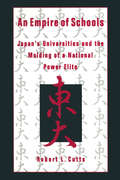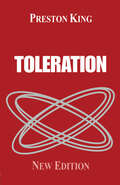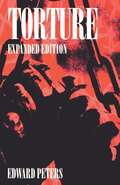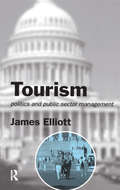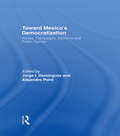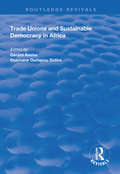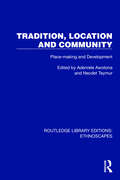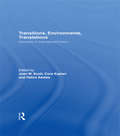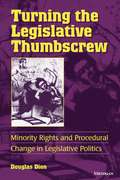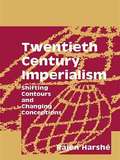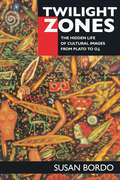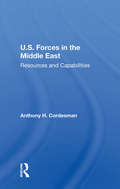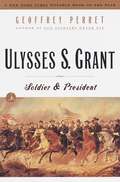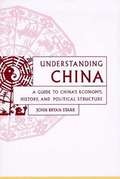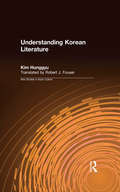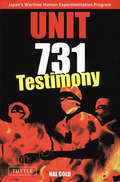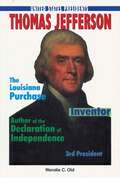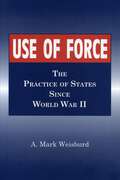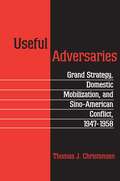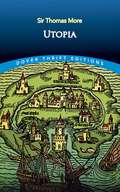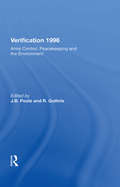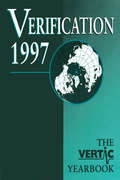- Table View
- List View
Todai: Gods and Humans in the Japanese Empire
by Robert CuttsBased on in-depth analysis, extensive interviews, and a journalist's keen insight, An Empire of Schools provides a new framework to explore the misunderstandings that have arisen between Japan and the United States. The vital determining issue that complicates U.S.-Sino communications, Cutts says, is not the cultural incompatibilities of the people or economies but the fact that all Japanese leaders emerge from the same educational treadmill or "cartels of the mind." This revered system, crowned by five national and private universities, and from which almost all Japanese leaders emerge, teaches its students that they are inherently incapable of sharing their values, civic or personal, with those of any other civilization. Describing an educational system that has been left fundamentally unchanged since the Meiji Empire, Cutts depicts the elites who graduate from the system, describes what ethical philosophy is imparted to those graduates, and warns of the dangers of nationalist elitism that arise from the system. Filled with personal anecdotes as well as critical interviews, An Empire of Schools traces the potential consequences to Japan and the Pacific Rim of an educational system that begins imparting an elitist doctrine in kindergarten that extends to the highest levels of Japanese government.
Toleration
by Preston King Professor Preston KingWhy should we be tolerant? What does it mean to ‘live and let live’? What ought to be tolerated and what not? Up-and-coming author, Catriona McKinnon presents a comprehensive, yet accessible introduction to toleration in her new book. Divided into two parts, the first clearly introduces and assesses the major theoretical accounts of toleration, examining it in light of challenges from scepticism, value pluralism and reasonableness. The second part applies the theories of toleration to contemporary debates such as female circumcision, French Headscarves, artistic freedom, pornography and censorship, and holocaust denial. Drawing on the work of philosophers, such as Locke, Mill and Rawls, whose theories are central to toleration, the book provides a solid theoretical base to those who value toleration, whilst considering the challenges toleration faces in practice. It is the ideal starting point for those coming to the topic for the first time, as well as anyone interested in the challenges facing toleration today.
Torture (The\middle Ages Ser.)
by Edward Peters"Torture has ceased to exist," Victor Hugo claimed, with some justification, in 1874. Yet more than a century later, torture is used routinely in one out of every three countries. This book is about torture in Western society from earliest times to the present.A landmark study since its original publication a decade ago, Torture is now available in an expanded and updated paperback edition. Included for the first time is a broad and disturbing selection of documents charting the historical practice of torture from the ancient Romans to the Khmer Rouge.
Tourism: Politics and Public Sector Management (Public Sector Management Ser.)
by James ElliottTourism looks set to replace oil as the most important global industry. James Elliot explores the ways in which governments of both developed and developing countries manage this increasingly diverse and volatile industry, providing a historic and economic overview as well as the reasons why and how governments are involved in tourism management.Using case studies from the UK, Australia and the Third World this wide ranging book covers: policy-making and planning; local governments; airlines and airports; and environmental control and sustainable development. Detailed information boxes and excerpts of official documents illustrate government management of the tourism system and provide critieria for evaluation
Toward Mexico's Democratization: Parties, Campaigns, Elections and Public Opinion
by Jorge I. Domínguez Alejandro PoiréFirst Published in 1999. Routledge is an imprint of Taylor & Francis, an informa company.
Trade Unions and Sustainable Democracy in Africa (Routledge Revivals)
by Gerard Kester Ousmane Oumarou SidibeFirst published in 1997, this volume sets out to open a dialogue with the trade union movement and its social partners including civil society, political leaders and the scientific community. The authors, all of whom work closely with APADEP, have drawn on their personal experience and have been guided by a simple, yet flexible, theme: trends in the last few decades in their countries, with the emphasis on transition over the last five years. Part I consists of an overview of sub-Saharan Africa based on selected documentation. Part II is given over to an analysis of the specific situations obtaining in ten African countries in different geographical and language areas. Each case study provides its own democratisation scenario.
Tradition, Location and Community: Place-making and Development (Routledge Library Editions: Ethnoscapes)
by Adenrele Awotona Necdet TeymurOriginally published in 1997, as part of the Ethnoscapes: Current Challenges in the Environmental Social Sciences series, reissued now with a new series introduction, Tradition, Location and Community: Place-making and Development brings together the selected papers of seventeen architects, social scientists and planners. It offers a range of original perspectives on the relationship between the design and habituation of the built environment on the one hand and social and cultural development on the other. As an archival volume, it attempts to present a mixture of cross-disciplinary and cross-cultural perspectives. It explores the view that planning and design (the organization of the physical/built environment) which follow from the rapid transformations wrought by development must respond to, and be based on, the wants and needs of the people affected; that is, it must be in accord with their notions of environmental quality.Divided into two sections. The first section has five chapters which explore the theoretical and conceptual aspects of place-making and development. Section two consists of twelve chapters, each of which presents a case study.
Transitions Environments Translations: Feminisms in International Politics
by Joan W. Scott Cora Kaplan Debra KeatesThe essays in Transitions, Environments, Translations explore the varied meanings of feminism in different political, cultural, and historical contexts. They respond to the claim that feminism is Western in origin and universalist in theory, and to the assumption that feminist goals are self-evident and the same in all contexts. Rather than assume that there is a blueprint by which to measure the strength or success of feminism in different parts of the world, these essays consider feminism to be a site of local, national and international conflict. They ask: What is at stake in various political efforts by women in different parts of the world? What meanings have women given to their efforts? What has been their relationship to feminism--as a concept and as an international movement? What happens when feminist ideas are translated from one language, one political context, to another?
Transportation & Land Use Innovations: When you can't pave your way out of congestion
by Reid EwingFirst published in 1997. Routledge is an imprint of Taylor & Francis, an informa company. This handbook introduces community leaders to an understanding of transportation mobility, offering suggestions to reduce congestion, automobile dependence, and vehicle miles of travel.
Turning the Legislative Thumbscrew
by Douglas DionThe use of filibusters in the U. S. Senate by small numbers of members to prevent legislative action apparently desired by a majority of the members--as evidenced by the battles over civil rights legislation in the 1950s and 1960s--is legendary. Similar situations have existed in other legislative bodies over time. The fear that they will at some time be in the minority has inhibited actions by the majority groups to control the right of minority groups to block legislative action. And yet from time to time the majority in a legislative body has forced a change in the rules to control the rights of the minority. When does the majority seek to limit minority rights to obstruct legislation? Douglas Dion, in a unique study, develops a formal model to set out the conditions under which majorities will limit minority rights. He finds that when majorities are small, they will be more cohesive. This majority cohesion leads to minority obstruction, which in turn leads to majority efforts to force procedural change to control the ability of the minority to obstruct legislation. Dion then tests his findings in a rich consideration of historical cases from the nineteenth-century U. S. House of Representatives, the nineteenth- and twentieth-century U. S. Senate, the British House of Commons, and an account of the Austro-Hungarian Parliament written by Mark Twain. Turning the Legislative Thumbscrewis a work that combines formal analysis with extensive historical evidence to address an important problem in democratic theory. Specialists in legislative politics and American political development, as well as those more broadly interested in the relationship between democratic theory and institutional structure, will find the work of great interest. Douglas Dion is Assistant Professor of Political Science, University of Michigan.
Twentieth Century Imperialism
by Rajen HarsheMoving beyond the conventional parameters of capitalism, Rajen Harsh[ac]e probes concepts such as: colonialism, neo-colonialism, hegemony and social imperialism, in order to assess their theoretical and empirical validity in the context of the third world. Fresh perspectives are provided on the basis of examples drawn from a wide range of countries and by situating the discussions in the debates on imperialism in the third world.
Twilight Zones: The Hidden Life of Cultural Images from Plato to O.J.
by Susan BordoConsidering everything from Nike ads, emaciated models, and surgically altered breasts to the culture wars and the O.J. Simpson trial, Susan Bordo deciphers the hidden life of cultural images and the impact they have on our lives. She builds on the provocative themes introduced in her acclaimed work Unbearable Weight—which explores the social and political underpinnings of women's obsession with bodily image—to offer a singularly readable and perceptive interpretation of our image-saturated culture. As it becomes increasingly difficult to distinguish between appearance and reality, she argues, we need to rehabilitate the notion that not all versions of reality are equally trustworthy. Bordo writes with deep compassion, unnerving honesty, and bracing intelligence. Looking to the body and bodily practices as a concrete arena where cultural fantasies and anxieties are played out, she examines the mystique and the reality of empowerment through cosmetic surgery. Her brilliant discussion of sexual harassment reflects on the Clarence Thomas/Anita Hill controversy as well as the film Disclosure. She suggests that sexuality, although one of the mediums of harassment, is not its essence, and she calls for the recasting of harassers as bullies rather than sex fiends. Bordo also challenges the continuing marginalization of feminist thought, in particular the failure to read feminist work as cultural criticism. Finally, in a powerful and moving essay called "Missing Kitchens"—written in collaboration with her two sisters—Bordo explores notions of bodies, place, and space through a recreation of the topographies of her childhood. Throughout these essays, Bordo avoids dogma and easy caricature. Consistently, and on many levels, she demonstrates the profound relationship between our lives and our theories, our feelings and our thoughts.
U.S. Forces In The Middle East: Resources And Capabilities
by Anthony H CordesmanThis volume provides the first detailed analysis of the trends in U.S. contingency capabilities since the end of the Gulf War, the impact of the Bush administration's "Base Force" policy, and the Clinton administration's "Bottom Up Review" of current U.S. contingency capabilities. It examines U.S. capabilities in the Gulf through the year 2001, the
Understanding China: A Guide to China's Economy, History, and Political Structure
by John BryanAn introduction to China's economics and political system.
Understanding Korean Literature
by Hung-Gyu Kim Robert FouserThis study examines the development and characteristics of various historical and contemporary genres of Korean literature. It presents explanations on the development of Korean literacy and offers a history of literary criticism, traditional and modern, giving the discussion an historical context.
Unit 731
by Hal GoldThis is a riveting and disturbing account of the medical atrocities performed in Japan during WWII.In the first part of Unit 731: Testimony, author Hal Gold draws upon a painstakingly accumulated reservoir of sources to construct a portrait of the Imperial Japanese Army's most notorious medical unit, giving an overview of its history and detailing its most shocking activities. The second half of the book consists almost entirely of the words of former unit members themselves, taken from remarks they made at a traveling Unit 731 exhibition held around Japan in 1994-95.
Unit 731
by Hal GoldThis is a riveting and disturbing account of the medical atrocities performed in Japan during WWII.In the first part of Unit 731: Testimony, author Hal Gold draws upon a painstakingly accumulated reservoir of sources to construct a portrait of the Imperial Japanese Army's most notorious medical unit, giving an overview of its history and detailing its most shocking activities. The second half of the book consists almost entirely of the words of former unit members themselves, taken from remarks they made at a traveling Unit 731 exhibition held around Japan in 1994-95.
United States Presidents: Thomas Jefferson
by Wendie C. OldExplores the life of the third president, from his childhood in Virginia, through his writing of the Declaration of Independence, to his years in office
Use of Force: The Practice of States Since World War II
by Arthur Mark WeisburdThis book is among the few to develop in detail the proposition that international law on the subject of interstate force is better derived from practice than from treaties. Mark Weisburd assembles here a broad body of evidence to support practice-based rules of law on the subject of force. Analyses of a particular use of force by a state against another state generally begin with the language of the Charter of the United Nations. This approach is seriously flawed, argues Weisburd. States do not, in fact, behave as the Charter requires. If the legal rule regulating the use of force is the rule of the Charter, then law is nearly irrelevant to the interstate use of force. However, treaties like the Charter are not the only source of public international law. Customary law, too, is binding on states. If state behavior can be shown to conform generally to what amount to tacit rules on the use of force, and if states generally enforce such rules against other states, then the resulting pattern of practice strongly supports the argument that the use of force is affected by law at a very practical level. This work aims to demonstrate that such patterns exist and to explain their content. Weisburd discusses over one hundred interstate conflicts that took place from 1945 through 1991. He focuses on the behavior of the states using force and on the reaction of third parties to the use of force. He concentrates upon state practice rather than upon treaty law and does not assume a priori that any particular policy goal can be attributed to the international legal system, proceeding instead on the assumption that the system's goals can be determined only by examining the workings of the system.
Useful Adversaries: Grand Strategy, Domestic Mobilization, and Sino-American Conflict, 1947-1958 (Princeton Studies in International History and Politics #179)
by Thomas J. ChristensenThis book provides a new analysis of why relations between the United States and the Chinese Communists were so hostile in the first decade of the Cold War. Employing extensive documentation, it offers a fresh approach to long-debated questions such as why Truman refused to recognize the Chinese Communists, why the United States aided Chiang Kai-shek's KMT on Taiwan, why the Korean War escalated into a Sino-American conflict, and why Mao shelled islands in the Taiwan Straits in 1958, thus sparking a major crisis with the United States. Christensen first develops a novel two-level approach that explains why leaders manipulate low-level conflicts to mobilize popular support for expensive, long-term security strategies. By linking "grand strategy," domestic politics, and the manipulation of ideology and conflict, Christensen provides a nuanced and sophisticated link between domestic politics and foreign policy. He then applies the approach to Truman's policy toward the Chinese Communists in 1947-50 and to Mao's initiation of the 1958 Taiwan Straits Crisis. In these cases the extension of short-term conflict was useful in gaining popular support for the overall grand strategy that each leader was promoting domestically: Truman's limited-containment strategy toward the USSR and Mao's self-strengthening programs during the Great Leap Forward. Christensen also explores how such low-level conflicts can escalate, as they did in Korea, despite leaders' desire to avoid actual warfare.
Utopia: And History Of King Richard Iii (Dover Thrift Editions Ser.)
by Sir Thomas MoreFirst published in Latin in 1516, Utopia was the work of Sir Thomas More (1477-1535), the brilliant humanist, scholar, and churchman executed by Henry VIII for his refusal to accept the king as the supreme head of the Church of England. In this work, which gave its name to the whole genre of books and movements hypothesizing an ideal society, More envisioned a patriarchal island kingdom that practiced religious tolerance, in which everybody worked, no one has more than his fellows, all goods were community-owned, and violence, bloodshed, and vice nonexistent. Based to some extent on the writings of Plato and other earlier authors, Utopia nevertheless contained much that was original with More.In the nearly 500 years since the book's publication, there have been many attempts at establishing "Utopias" both in theory and in practice. All of them, however, seem to embody ideas already present in More's classic treatise: optimistic faith in human nature, emphasis on the environment and proper education, nostalgia for a lost innocence, and other positive elements.In this new, inexpensive edition, readers can study for themselves the essentials of More's utopian vision and how, although the ideal society he envisioned is still unrealized, at least some of his proposals have come to pass in today's world.
Verification 1996: Arms Control, Peacekeeping, And The Environment
by J. B. PooleThis sixth issue of Verification on the aspects of international arms control and disarmament agreements documents the developments in the field during 1995. It discusses the anniversaries of the Second World War, the atomic bombing on Hiroshima and Nagasaki, and the United Nations.
Verification 1997: The Vertic Yearbook
by Richard GuthrieFrequently consulted for its knowledge of international and national agreements and for its technical expertise, VERTIC is the first port of call for many TV and radio journalists. The new 1997 volume is divided into two parts. The first half of the book contains twelve original essays analyzing the arms control, peacekeeping, and environmental issues in 1996. The second half contains a greatly expanded collection of twenty-one primary documents that scholars and policy practitioners will find indispensable--from the Cairo Declaration to the Declaration of the Moscow Nuclear Safety Summit to the complete text of the Comprehensive Test Ban Treaty and the attendant declarations.
